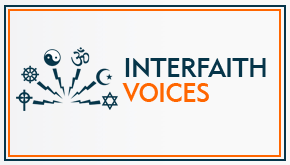Islamaphobia’s Long History in the US
A recent report from the national Council on American Islamic Relations says bias incidents against those perceived to be Muslim are up by 17 percent and hate crimes are up 15 percent, compared with 2016. Some experts say our political climate is to blame. But we learn that anti-Muslim sentiment in the U.S. predates the country, and is based in a history of white supremacy. Guests include Simran Jeet Singh, Henry R. Luce Post-Doctoral Fellow for Religion in International Affairs at New York University’s Center for Religion and Media and senior religion fellow at the Sikh Coalition, Khaled Beydoun, author of the new book American Islamophobia: The Roots and Rise of Fear, and Besheer Mohamed, senior researcher at the Pew Research Center.
Networks of Fear Foster Bias
Some researchers – like Wajahat Ali– say reasons to fear Muslims are being purposely exaggerated. Ali, a lawyer, detailed this so-called Islamophobia Network in America in the 2011 “Fear Inc.” report he co-authored with the Center for American Progress. He argues that funders, think tanks, media and political actors create an echo chamber of influence that results in certain policies and the normalizing of anti-Muslim rhetoric. And a recent BuzzFeed News investigation, co-written by national reporter Hannah Allam, found examples of anti-Muslim speech and activity by elected officials since 2015 in 49 out of 50 states. Research also shows the rhetoric from both the political right and left is contributing to bias against those perceived to be Muslims. And it is leaking into the U.S.’ legal and media systems, says a new report from the Institute for Social Policy and Understanding. Other guests include Carey Shenkmen and Kumar Rao, of the Institute for Social Policy and Understanding.
One Small Town’s Story of Their Battle with Anti-Islamic Rhetoric
A new poll from the Institute for Social Policy and Understanding shows more than 85 percent of Americans “want to live in a country where no one is targeted for their religious identity.” Most Americans also reject collective blame of Muslims for the violent acts of individuals. But even so, Islamophobia remains. So how do we combat those views? We hear from experts about how education and simple interactions can go a long way, while BuzzFeed’s Hannah Allam tells us about the political organizing against Islamophobic rhetoric in a small Michigan town where there are no Muslims.



